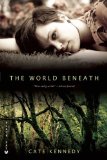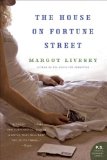Summary | Excerpt | Reading Guide | Reviews | Beyond the book | Read-Alikes | Genres & Themes | Author Bio

"It is love, not reason that is stronger than death."
- Thomas Mann.
Run seems uncomplicated at first glance, the structure
deceptively simple. Through gravitational forces that exude from
tragedy, Ms. Patchett gathers together within the same sphere the
highly incongruent Doyle and Moser families. Socio-economic barriers
between the two are thick, binding and one-sided. The space between
their homes is within walking distance, but they may as well live on
different planets.
Ms. Patchett knows that society has no qualms in accepting an
Americanized caste system as a common norm when dealing with the
upper echelons of the uber-rich and celebrities. Even the
politically correct and socially conscious upper-middle class Doyle
family who are filled with moral outrage over poverty tend to ignore
or avoid everyday situations that put them in contact with the
so-called underprivileged.
The political statements that float on the surface of Run are
as obvious as a light-refracting oil slick attached to scummy tide
water beating against the Boston shore line. It is clear that
Patchett is aware of her political soapbox and the blatant
philosophical and religious statements within her novel, and
understands that these things alone would never stand up as an
entertaining work of fiction. However, combined with a good story,
great characters and ethical lessons, she can still say what she
wants to say without bogging down the reader.
Run is masterfully written with prose that vibrates like a
well-conducted orchestra. The seamless complexity of the novel can
only be seen on completion. There is a magical quality to the
writing - not a hocus-pocus abracadabra, pull a rabbit out of the
hat magic, but a more primal magic that makes one shiver in
realization that below the mundane every-day world is a shimmering
substrata of unconditional love.
Ann Patchett was born in Los Angeles in 1963 and raised in
Nashville. She attended Sarah Lawrence College and the University of
Iowa Writers' Workshop. In 1990, she won a residential fellowship to
the Fine Arts Work Center in Provincetown, Massachusetts, where she
wrote her first novel, The Patron Saint of Liars. It was
named a New York Times Notable Book for 1992. This was followed by
Taft in 1994 and The Magician's Assistant in 1997.
Her next novel,
Bel Canto, won both the PEN/Faulkner Award and the Orange
Prize in 2002, and was a finalist for the National Book Critics
Circle Award. It was named the Book Sense Book of the Year and has
sold over a million copies in the United States and has been
translated into thirty languages.
In 2004, Patchett published
Truth & Beauty, a memoir of her friendship with the writer
Lucy Grealy. It was named one of the Best Books of the Year by the
Chicago Tribune, the San Francisco Chronicle, and Entertainment
Weekly.
She lives in Nashville, Tennessee with her husband, Karl Van
Devender. Her mother is the author
Jeanne Ray, a former nurse who published her first book in her
60s, and is now the bestselling novelist of books such as Julie
and Romeo, Step-Ball-Change and Eat Cake.
![]() This review was originally published in The BookBrowse Review in September 2007, and has been updated for the
August 2008 edition.
Click here to go to this issue.
This review was originally published in The BookBrowse Review in September 2007, and has been updated for the
August 2008 edition.
Click here to go to this issue.

If you liked Run, try these:

by Cate Kennedy
Published 2011
A compassionate and unswerving portrait of a broken family whose members go to extraordinary lengths to reclaim their lives and relationships from the mistakes of the past.

by Margot Livesey
Published 2009
Margot Livesey skillfully reveals how luck—good and bad—plays a vital role in our lives, and how the search for truth can prove a dangerous undertaking.
I am what the librarians have made me with a little assistance from a professor of Greek and a few poets
Click Here to find out who said this, as well as discovering other famous literary quotes!
Your guide toexceptional books
BookBrowse seeks out and recommends the best in contemporary fiction and nonfiction—books that not only engage and entertain but also deepen our understanding of ourselves and the world around us.